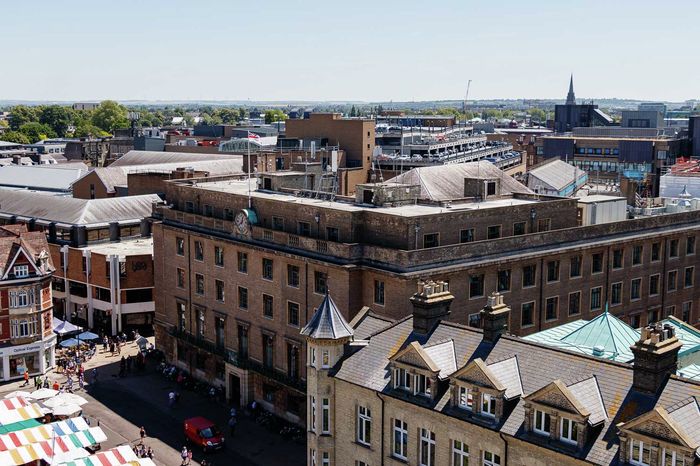Combined authority commits £1 million to inequality fund
Greater Cambridge Impact project aims to reverse Cambridge’s status as the most unequal city in the UK

Cambridgeshire and Peterborough combined authority’s investment committee has approved £1 million towards an initiative that aims to reduce inequality across the Cambridge area.
The project, called Greater Cambridge Impact (GCI), plans to raise £10 million over 10 years to work with the most disadvantaged communities in the region.
The initiative will invest in and offer loans to charities, social enterprises and community interest companies. It will also work with local government to find solutions to Cambridge’s persistently high levels of inequality. Financial returns from this scheme will then be reinvested into the project.
This is the second financial pledge to the GCI after Cambridge City Council, which initiated the scheme, also committed in-principle funding of £1 million to the project in July 2023.
Proponents of the GCI scheme believe that the initial £1 million investment will attract private investment to reach the project’s £10 million target.
Simon Smith, executive councillor for finance at Cambridge City Council, welcomed this development, stating that: “the welcome commitment of the combined authority not only builds the fund but gives others more confidence to invest”.
This was echoed by the executive director of GCI, Sara Allen, who said: “joint initiatives like this, working across the public and private sectors for the public good, can lead to more effective solutions, foster sustainable development and encourage vital, new thinking”.
Inequality in Cambridge is a pressing issue that goes beyond the ‘town versus gown’ divisions between university students and local residents. Centre for Cities, a think tank, identified Cambridge as the most unequal city in the UK in its 2017 and 2018 cities outlook reports.
The think tank also found that while Cambridge gained over 20000 jobs from 2010 to 2022, housing became less affordable, with the cost of a home rising from 10.8 times average earnings in 2010 to 15.8 times earnings in 2022.
Relative poverty has also increased in the city in recent years, with Centre for Cities finding that there were 300 more children living in relative poverty in 2021 than in 2014. Meanwhile, in 2018 The Guardian reported that the top 6% of earners in Cambridge take home 19% of total income generated by residents, whereas the bottom 20% of earners take home just 2%.
This comes despite continued efforts to reduce inequality in the area. Along with the GCI, this includes Cambridge City Council’s community wealth building strategy and its predecessor, the anti-poverty strategy, which was in place from 2020 to 2023.
 News / Corpus students banned from formals after ‘unacceptable behaviour’31 January 2025
News / Corpus students banned from formals after ‘unacceptable behaviour’31 January 2025 Features / Noiseless noise: headphone culture at Cambridge28 January 2025
Features / Noiseless noise: headphone culture at Cambridge28 January 2025 News / Jesus College closes China Forum early 3 February 2025
News / Jesus College closes China Forum early 3 February 2025 News / Yellow ribbons for hostage solidarity appear in Cambridge overnight 4 February 2025
News / Yellow ribbons for hostage solidarity appear in Cambridge overnight 4 February 2025 News / UK government revives Oxford-Cambridge Arc scheme1 February 2025
News / UK government revives Oxford-Cambridge Arc scheme1 February 2025






